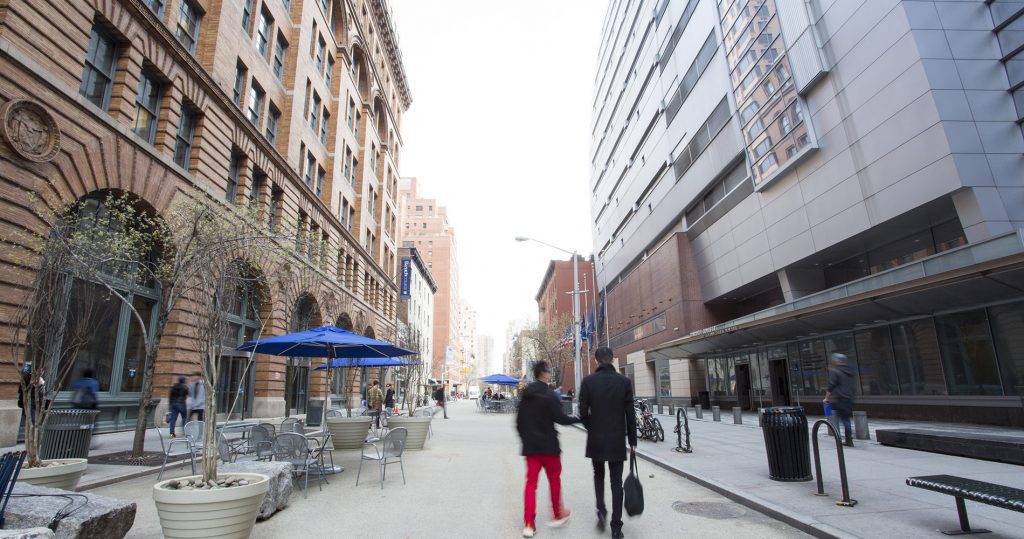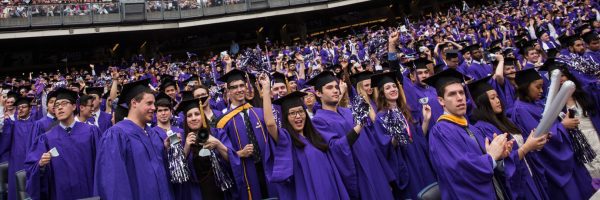MBAs Hold High Expectations for B-School Admissions Process, Survey Finds

According to the 2018 MBA Applicant Survey conducted by the Association of International Graduate Admissions Consultants (AIGAC), MBA applicants expect a lot from business schools as they make their way through the admissions process. Not only do they want the schools themselves to be more transparent—including providing status updates, feedback, and earlier wait list decisions—they also want more consultant advice and interaction.
“More transparency in terms of the status of the application will be appreciated,” wrote one survey respondent. “Leading schools like [schools] were notoriously quiet about the application for more than 5 weeks.”
Even applicants whose bids for admission were unsuccessful want more from schools. “Feedback at some point would be fantastic,” wrote one. “At least some indication of what portion of an application was below expectation would be helpful even just for personal development.”
The latest annual AIGAC survey drew almost 2,000 responses from applicants to more than two dozen leading business schools. Results were released as part of the admissions consultant group’s annual conference, which took place last week at Northwestern’s Kellogg School of Management.
Where Do MBA Applicants Look for Admissions Information?
According to the survey results, school websites are a primary source of information for 80 percent of applicants. After school websites, online information sessions, student and alumni referrals, and admissions teams are where applicants are most likely to turn. In terms of what they are looking for, applicants are most eager for information that helps them set expectations for the admissions process, but finding it isn’t always easy. As one survey respondent said, “[School]’s application process was steeped in mystery.”
Outside of school resources, students look to social media, online communities/forums, MBA rankings, and then family/friends/work colleagues. They also look to the blogs and websites of admissions consultants as well as printed viewbooks and brochures. And many applicants look in as many places as possible to find the information they crave.
“Videos, interviews, and current or alumni experiences are very valuable,” wrote one survey respondent. Another underscored the importance of school websites being “very easy to navigate.” Online seminars that only reiterate information available on the schools’ websites are less valuable, shared another.

In the social media sphere, more applicants look to LinkedIn for information than any other channel, followed by YouTube and Facebook. Quora follows, trailed by Instagram and Twitter.

Schools That Get to Know MBA Applicants Best
Cornell’s Johnson Graduate School of Management, UVA’s Darden School of Business, and Dartmouth’s Tuck School scored the highest marks in terms of how well they get to know applicants as part of the admissions process. Notably, some of the most highly ranked business schools fell short in this regard, with Stanford Graduate School of Business and Harvard Business School bringing up the rear. As one candidate explained, “Though I fell in love with [school] during my campus visit, I felt that their application process was very impersonal, and I didn’t feel like I had enough of an opportunity to show the school who I was with a video and a [short essay] …”

Why the MBA? Why a Particular School?
The survey also sought to understand what most motivates applicants to apply to MBA programs in general. More than half—57 percent—seek to acquire new information, skills, and knowledge. Forty-nine percent, meanwhile, want access to job prospects. And 48 percent are seeking a stronger network or to advance their careers.
As for the top factors influencing which schools applicants choose to target, reputation reigns supreme, cited by 66 percent of applicants surveyed. School rank was a top factor for 61 percent, and school culture, for 53 percent.
To learn more about the survey results and to read more personal responses from applicants, consult the full survey here.
This article was edited and published with permissions from our sister site, Clear Admit.
New York City’s Work/Life Balance Problems, and More – New York City News

Let’s explore some of the most interesting stories that have emerged from New York City business schools this week.
Would You Like Your Boss to be Fined for Making You Reply to Emails? – NBC News
Lehigh University College of Business and Economics management professor Liuba Belkin’s work was recently cited by NBC News regarding a potential new NYC law that would effectively ban workers from being forced to reply to after-hours emails and other messages. The reason behind the proposed law is that the increasingly common practice in the U.S. is decreasing work-life quality, which was a provincial point of Belin and co-author William J. Becker’s study “Exhausted, but Unable to Disconnect: After-Hours Email, Work-Family Balance and Identification.”
The potential new law would not effectively ban those from sending messages after hours, but being forced to work off-the-clock would be subject to a fine of around $500 for each offense. France, NBC News writes, passed a similar law in 2017 “requiring businesses with 50 or more employees to negotiate after-hours email rules with workers, potentially allowing them to ignore post-work correspondence.”
Human resources manager Steve Wang thinks the lofty comparison to France’s work culture is not as easy in the U.S. The country has stricter labor laws, instituting 35 hour max work weeks, and a law preventing people from working 4.5 hours straight without any breaks, for instance.
Click here to read more about the law and Belin’s study.
What are the Best Healthcare MBAs You Can Find in New York City? – MetroMBA
Four of the best health care MBA programs reside in New York; three of which fall right inside the five boroughs. Columbia Business School, the Zicklin School of Business at Baruch College, the Stern School of Business at NYU, and the SC Johnson Graduate School of Management at Cornell in Ithaca each offer exemplary healthcare management learning options for any hopeful MBAs, some of which are coupled with dual degrees.

Zicklin’s Executive MBA in Healthcare Administration is one of the few programs in the New York metro that has both AACSB and CAHME accreditation.
Find out more about the best healthcare MBAs you can find in New York here.
Daniel A. D’Aniello speaks on the value of mentorship in driving success – Johnson SOM Blog
Cornell University’s SC Johnson Graduate School of Management recently hosted Carlyle Group co-founder and former Marriot VP of Finance and Development Daniel A. D’Aniello at this year’s Lewis H. Durland Memorial Lecture.
D’Aniello used the talk as an opportunity offer invaluable entrepreneurship, stewardship, and mentorship advice to Johnson students from his distinguished career as co-founder of one of the world’s largest investment firms. He also “emphasized the importance of humility in recognizing one’s errors and understanding how to spend one’s time.” He elaborates:
“Allocate your valuable time to things that are going to scale, grow, and become profitable. Time is your highest opportunity cost.”
You can read more highlights from D’Aniello’s talk here.
Cornell Alum Supports Cornell Tech NYC Intensives with Substantial Gift

More students at Cornell’s Johnson Graduate School of Management have been able to spend a semester of their time in business school studying at the Cornell Tech campus in New York City thanks to a generous gift by Cornell alumnus Richard G. Schneider (B.S. ’70).
The gift went toward subsidized housing costs for around 25 Ithaca-based students who took part in Cornell Tech’s New York City fintech and digital marketing intensives. The intensives took place during the first seven weeks of the spring 2018 semester and offered MBA students the chance to collaborate and learn from each other in the heart of the Big Apple.
Schneider has spent 35 years in consulting, 25 of those at Deloitte Consulting LLP. At Deloitte his primary focus was on the consumer products and healthcare/life science industries, but he also led the firm’s consulting strategy practice for seven years and was responsible for all MBA campus recruiting for five years. Although his MBA is from Harvard Business School, he served on Johnson’s Advisory Council from 2006 to 2014 and remains an emeritus member.
He saw his gift as an opportunity to give back to Cornell. “I had been involved with Cornell in various ways,” he said in a news release, “but this gave me a chance to play in an area that I knew a lot about—the business school world. It just gave me a chance to give back to the school and really feel like I was contributing.”
Schneider’s decision to invest in the New York City intensives was due in part to Johnson Dean Mark Nelson’s assessment of where Johnson needed help. Nelson explained how crucial it was to make it easier for Ithaca students  to participate in and benefit from Cornell Tech in New York City. One of the most significant barriers was affordability.
to participate in and benefit from Cornell Tech in New York City. One of the most significant barriers was affordability.
Schneider’s contribution helped to make it easier for Ithaca MBA students to relocate to New York City for half a semester. It was good news for a program that has captured the imaginations of Cornell students since its inception.
According to Cristina Chang (MBA ’18), who completed the fintech intensive this spring, it was one of the most rewarding scholastic experiences she’s had so far.
“There are lots of events co-hosted by Cornell Tech and other organizations, such as the Women in Venture Capital symposium co-hosted with Bloomberg,” she explained. “I never imagined I would have these kinds of opportunities to meet these outstanding leaders in person.”
Julia Heim (MBA ’18) had a similar experience in the digital marketing intensive. “Being so close to the industry in NYC has allowed our professors to get great companies and speakers to campus,” she said. “Having access to the latest trends and industry knowledge is something that is so invaluable, and I am grateful for having had the opportunity to be part of this intensive.”
Overall, Schneider is excited about the opportunities that Cornell Tech presents for students and believes that it “could be the biggest thing for the university … for decades.”
This article has been edited and republished with permissions from our sister site, Clear Admit.
How Quickly Can You Earn an MBA in New York City?

The time of the two-year MBA is coming to an end. Now, many top schools offer accelerated MBA programs that can be completed in as little as 12 months—with one school offering a nine-month MBA program designed just for business school graduates. So where you can find the fastest MBA degrees in NYC?
For most of these one-year NYC business school programs, the MBA curriculum and experience is similar to that of the traditional two-year MBA but condensed into a more intense 12-month format. These are the ideal programs for business professionals who do not have the time to take off two years of work but want the full MBA experience. Continue reading…
What is Going on at the Cornell Johnson College of Business?

Cornell Business Dean Soumitra Dutta has officially stepped down from his role, but no one is saying why.
Soumitra Dutta, who has served as the first-ever dean of the S.C. Johnson College of Business at Cornell University, resigned abruptly yesterday, and neither the school nor Dutta has provided any reason for his sudden departure, according to a report in the Cornell Daily Sun.
The College of Business, launched in July 2016, merged the Johnson Graduate School of Management, the School of Hotel Administration, and the Charles H. Dyson School of Applied Economics and Management. Dutta also oversaw the Cornell Tech MBA program at Cornell’s campus on Roosevelt Island in New York City.
Cornell Provost Michael Kotlikoff sent an email to business college students and employees to say that he had accepted Dutta’s resignation, effective immediately, but he also did not offer an explanation for his abrupt departure, according to the Sun report.
Two days after the departure, the Cornell Sun is still looking for answers, leading with the recently released article headlined, “Cornell Silent for Second Day as Mystery of Business Dean’s Exit Grows.”
The official university response to questions has been that Cornell “does not comment on private personnel matters,” the Sun reported. Dutta has not responded to emails. His wife, Lourdes Casanova, a senior lecturer at Cornell’s Johnson Graduate School of Management, also declined to comment when approached by reporters at the couple’s home yesterday evening. “I’m sorry but we cannot say anything,” she told the Sun.
In his email announcing Dutta’s departure, Kotlikoff shared that L. Joseph Thomas, who serves as Johnson dean from 2007 to 2012, will assume Dutta’s role on an interim basis as Cornell searches for a permanent dean.
For more on Dutta’s background and the intrigue surrounding his sudden departure, read the full Cornell Daily Sun article.
This article has been edited and republished with permissions from our sister site, Clear Admit.
Stanford Reigns Supreme on New Financial Times Global Ranking

INSEAD hoped to top the Financial Times MBA rankings for the third year in a row, but it wasn’t to be. The Stanford Graduate School of Business (GSB) gets top bragging rights this year, returning to the number-one spot it has held only once before, in 2012. INSEAD was knocked to number two, followed by the University of Pennsylvania’s Wharton School, which held steady at number three. London Business School (LBS) reclaimed some ground this year—coming in fourth—after a rare fall last year out of the top five. Harvard Business School (HBS), meanwhile, ranked fifth, its lowest showing since 2008.
Rounding out the top 10 this year were the University of Chicago Booth School of Business at sixth (up from ninth last year); Columbia Business School at seventh (unchanged from 2017); China’s CEIBS at eighth (up from 11th); MIT Sloan School of Management at ninth (up from 13th); and UC Berkeley’s Haas School of Business at 10th, (also up from 13th).
Perhaps the greatest victors of this year’s FT rankings were two-year MBA programs, which occupied nine out of the top 10 spots. More two-year programs moved up or maintained their position this year than moved down (31 compared to 21). In contrast, more one-year programs lost ground than gained this year (14 up, 21 down).
“It’s great to see the continued strength of the two-year MBA format in this year’s FT rankings, a format that allows for a truly transformational and immersive experience,” said Clear Admit Co-Founder Graham Richmond. “LBS’s move back into the top five isn’t surprising in light of the program’s continued strength in job placements, new facilities, curriculum redesign, and location at the heart of business and innovation in Europe (even as Brexit looms),” he continued. “While HBS’s position is inconsistent with Clear Admit’s Decision Wire-based data on applicant preferences, it’s the increasing gap in the FT ranking between Stanford and HBS that seems noteworthy.”
As always, the bearing a given ranking should have on your own choice of schools depends on how closely the methodology used to arrive at that ranking aligns with what you deem most important. So just how does the FT compile its list each year?
Understanding the FT Ranking Methodology
The FT ranking is based on surveys of alumni three years out from graduation, school data, and research rank. Alumni responses inform eight criteria—including average income three years after graduation and salary increase compared with pre-MBA salary. Together, these eight criteria account for 59 percent of the overall ranking. School data inform another 11 criteria—including various measures of diversity such as percentages of female and international faculty, students, and board members. Together these criteria make up another 31 percent of the ranking. The remaining 10 percent of the ranking is based on research rank, calculated according to the number of articles by full-time faculty in 50 internationally recognized journals, weighted relative to faculty size.
Record-Breaking Salaries Put Stanford GSB on Top
Stanford, which ranked second last year, managed to unseat INSEAD this year thanks in part to the record-breaking salaries reported by its alumni. The average Stanford alumnus salary three years after graduation was $214,742, up $20,000 over last year’s figures and the highest recorded since the inaugural FT ranking in 1999. Stanford grads’ average salary also represented a 114-percent gain on their pre-MBA salaries, also the highest increase among ranked schools. That a significant proportion of Stanford grads head into highly lucrative hedge fund positions helped it outdistance its rivals in this regard.
Stanford also far outdistanced its U.S. rivals in terms of the international exposure it affords its students. More than 25 percent of the latest graduating cohort did an internship abroad—compared to an average of 4 percent at ranked U.S. schools. Overall, though, Stanford ranked 32nd for international course exposure, down 14 places from last year. But in other measures of diversity, Stanford made gains, including its international faculty (41 percent), international board (25 percent), and international students (41 percent). In this last figure, too, Stanford set itself apart from its U.S. rivals, the majority of which have recruited fewer international students. Although the average proportion for ranked institutions is down by only one percentage point to 38 percent, the FT noted.
Research Scores Hold HBS, LBS Back
Both HBS and LBS saw their average salaries three years out increase by approximately $14,000—to $192,133 and $167,897 respectively. That climb helped LBS return to the top five this year, but sharp drops in each schools’ research ranks worked against them. Harvard’s research rank plummeted from third to 16th—contributing to its fall to fifth in the overall ranking. “This year’s research rank is based on articles published in 50 academic and practitioner journals by full-time faculty since January 2015, but several Harvard faculty last appeared in these publications in 2014, too long ago to count,” the FT noted. LBS, for its part, dropped from 12th to 27th in research rank.
Rice Business, Olin, Georgetown McDonough, Cornell Johnson See Big Gains
Just as two-year MBA programs fared well with regard to their one-year rivals this year, a select group of individual schools saw big gains this year over last. Rice University’s Jones School of Business jumped 19 places this year, from 64th to 45th. This surge can be attributed primarily to strong salary growth. Average salary grew from $130,189 to $139,189, contributing to a 118-percent increase over pre-MBA salary (up from 97 percent last year).
Washington University’s Olin Business School rose 18 spots, from 68th to 50th. The St. Louis school saw significant gains in average salary ($122,709) and increase over pre-MBA salary (107 percent). Georgetown University’s McDonough School of Business jumped 10 spots, from 40th to 30th, thanks also in part to increased average salary, as well as improved research rank (up 10 spots to 17th) and various diversity measures. And Cornell University’s Johnson Graduate School of Management also moved 10 spots up in the ranks, from 27th to 17th, due in great part to a significant increase in its research rank, up 13 places to fourth overall.
Spain’s Schools Slip Out of Top 10
In less celebratory news, two of Spain’s top-tier business schools slid out of the FT’s upper-most ranks. IESE slipped from 10th to 11th. Though its graduates’ average salary increased year over year, the increase was slight. Moreover, it slipped seven spots in terms of percentage increase over pre-MBA salary. Research rank, too, fell by five spots over the previous year.
IE Business School, meanwhile, fell out of the ranking altogether—from eighth last year. This is because it couldn’t gather a representative sample of the school’s alumni to take part in the FT’s survey.
As always, those of us here at Clear Admit encourage prospective applicants to use a school’s performance in these and other rankings as just one of many measurements to determine the MBA program that will best fit your individual needs.
You can view the complete Financial Times 2018 Global MBA Rankings here.
